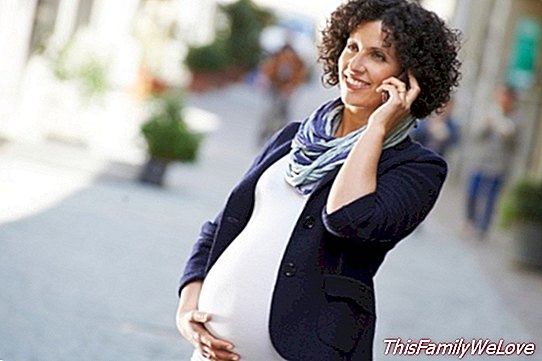Pregnancies at 40 have tripled since 2000

Getting pregnant after age 40 is becoming more frequent, to the point that, according to the Spanish Society of Gynecology and Obstetrics (SEGO), the number of women who become pregnant after turning 40 has tripled since 2000, a figure that gynecologists consider "scandalous".
Currently, one in three women believes that they still have time to get pregnant until they are 45 years old or older, when the reality is that of every 100 women who want to be a mother when they reach this age, only one gets it. This has been the central axis of the XV National Meeting on Health and Women's Medicine (Samem 15) that is being held in Madrid.
Specialists in gynecology warn that today science has not yet managed to circumvent the biological clock and women should be aware that the quantity and quality ovocitaria decreases after 35 years compromising fertility.
Dr. Santiago Palacios, coordinator of the XV National Meeting on Health and Women's Medicine (Samem 15) explained that "33 percent of deliveries in Spain occur in women over 35 years, an age in which the fertility and quality of the oocytes of women begins to decline and that Spaniards have their first child at 32.7 years, compared to 31.6 eight years agos. And he adds that "gynecologists worry that the search for the first child takes place at a time when fertility is very compromised."
Delaying motherhood: reasons and risks
A survey by the Center for Sociological Research (CIS) on the main reasons that women claim not to have the number of children they would like, pointed out the lack of income and the difficulties in combining their family life with work, among the greatest difficulties . In this sense, the gynecologist Santiago Palacios explained that "the Spanish Society of Gynecology and Obstetrics (SEGO) has asked gynecologists to talk to women about their wishes for motherhood before reaching 33 years."
And it is that facing a pregnancy with 40 years old involves risks, typical of age, both for the mother and her baby, mainly a higher percentage premature births and abortions, as well as chromosomal alterations, and a higher incidence of diseases themselves of pregnancy such as gestational diabetes or preeclampsia.
According to this specialist, "women over 35 believe that they are still very young and that they still have time to think about motherhood, which shows that, in general, there is a lack of information about the possibilities of becoming pregnant after a certain period of time. age".
Marisol New




